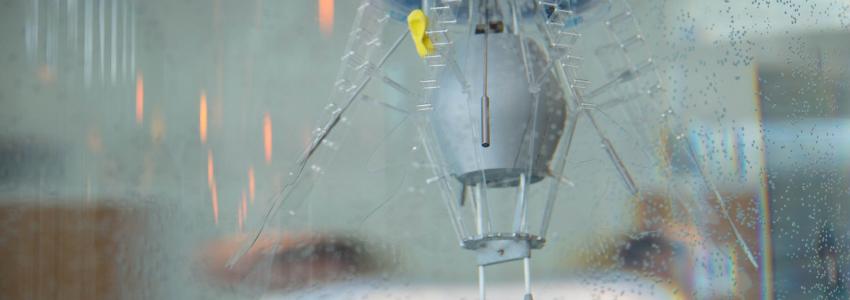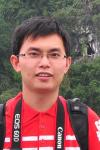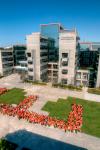
Research in modern systems science covers a variety of topics, with an emphasis on the intensive use of mathematics and computers in distributed complex dynamical systems which evolve in an environment containing considerable uncertainty and complexity.
Consider, for example, the control of a mobile robotic system interacting with a changing environment. The intent is for the elements of the system (arms, camera, mobile base) to cooperate in the performance of some complex task. The nature of the cooperative interaction is task dependent and may require real-time adjustments to accommodate sensed environmental constraints. The control loop is subject to external disturbances (e.g. changes in the environment), and the robot structural properties change with changing loads. Measurements of the relevant states are made by conventional position or force sensors as well as image sensors (video cameras). These measurements are subject to both noise - random perturbations in the sensor outputs and artifacts (e.g. partial obscuration of the image field). The need for good planning and control for nominal performance, as well as proper emergency capability, also complicates the design problem. The system must operate properly in a wide range of operating modes
Similar issues arise in biomedical control problems, and aerospace guidance and control problems. All of these designs require fusion of a complicated suite of sensors, computers, and problem dynamics into one integrated system. Again, the wide range of events to which the system is subject create an environment in which the controller must adapt itself to its perception of the operational conditions.
As a group, faculty in systems science are involved in virtually all aspects of this problem. Individual faculty are focusing on topics that include aerospace guidance and control, as well as advanced digital signal and image processing, image-based tracking and guidance systems, control of teleoperated vehicles, analysis and control of mobile multi-armed robot manipulators, and robotics in surgery. Researchers also integrating non-traditional approaches including reinforcement learning, neural networks, fuzzy adaptive control, and rule-based descriptions from LISP and PROLOG. Typically, advanced mathematical and computational techniques play a fundamental role in this work. Much of our research is at the interface between mathematics, control theory, and computer science.
In summary, the group is interested primarily in the study of intelligent information systems. Focus is placed on that class of system which can, and must learn, about its environment in an on-line fashion. Such systems exhibit behavior that a human observer would describe as competent, perhaps purposeful, and at time, even intelligent.
Information engineering has extensive computing facilities including a Vision Lab (http://vision.ucsd.edu), an extensive network of workstations and access to the Computational and Graphical facilities in the San Diego Supercomputer Center.
Faculty

Nikolay A. Atanasov

Pradeep K. Khosla

Siavash Mirarab (Mir arabbaygi)

Parinaz Naghizadeh

Truong Nguyen

Jorge Poveda

Yuanyuan Shi

Nuno M. Vasconcelos

Jun-Kun Wang

Xiaolong Wang

Pengtao Xie

Michael Yip

Yang Zheng
Adjunct Faculty

Cheolhong An

Peter Gerstoft
Affiliated Faculty

Miroslav Krstic
Emeritus Faculty

Clark C. Guest

